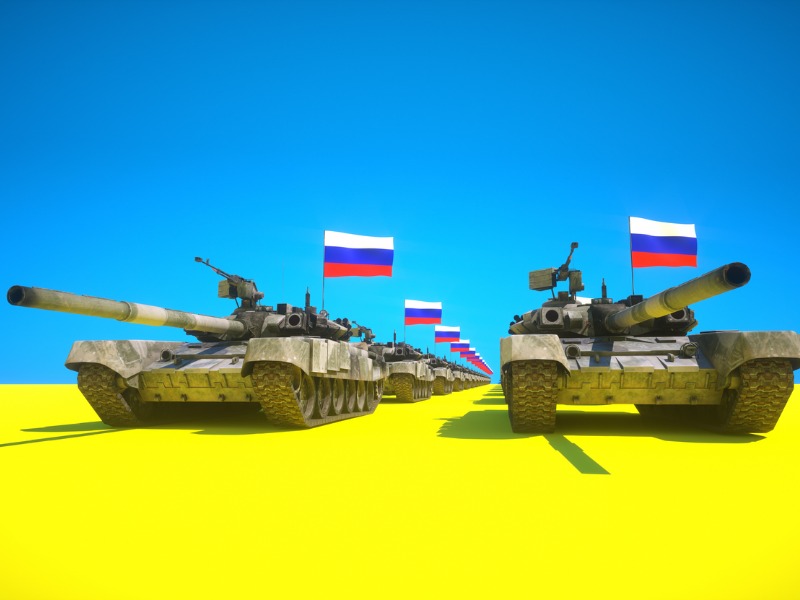
Russia’s attack on the Ukraine is dominating the headlines and driving current market sentiment, but for Canadian investors, in the long run, economic fundamentals and monetary policy are typically more important than global conflicts, suggests a new report from economists at Bank of Montreal.
The primary economic and financial impact of the Russian invasion for Canada is the resulting surge in energy prices, BMO said.
Coming against the backdrop of already-strong inflation, rising energy prices adds more fuel to the fire.
“If prices hold at current levels, or head higher, this factor alone could bump headline inflation by roughly 0.6 [percentage points],” it said.
Oil prices are likely to be the biggest impact for the Canadian economy too, BMO said, as there’s relatively little direct trade and investment between Canada and either Russia or the Ukraine.
Ordinarily, higher energy prices are good for the Canadian economy, but if rising prices slow global growth, this can undermine the positive effects, BMO noted.
“This rapid rise in energy prices risks doing just that, especially at a time when consumers are already rattled by rising inflation,” the report said. “At best, this broad-based rise in commodity prices is neutral for overall growth, and may even tip over into being a moderate drag, given the shock to consumers and the sentiment-damaging effect of the invasion.”
In terms of the impact on monetary policy, BMO continues to expect that the Bank of Canada will raise rates by 25 basis points next week — but the pace of future hikes is now less clear.
“Indeed, the sharp move higher in energy prices only reinforces inflation concerns, though there’s the added layer of growth risks as well due to the extent of the increase in oil prices and because of the Russia/Ukraine conflict itself,” it said.
So, if the conflict drags on, it could affect how many rate hikes the Bank of Canada delivers in the months ahead.
“Until we get more information on the extent of sanctions that will be imposed on Russia, it’s difficult to assess the medium-term impact on the Canadian economy and policy. However, the risks appear skewed to a lower end-point for policy rates until this conflict quiets,” BMO said.
Similarly, in the U.S., it’s expected that the Fed will still raise rates next month as forecast, but the likelihood of future hikes is now less certain.
“Much will depend on the European economic consequences of the current conflict and its potential escalation,” BMO said, adding, “At this point, we remain comfortable with our call for 125 bps of total rate hikes this year, in this very fluid environment.”
In terms of equities, the TSX’s relatively high exposure to commodities tends to make it somewhat of a safe haven amid high inflation and rising energy prices.
“Against a backdrop of monetary policy tightening, the TSX has found a strong niche thanks to more exposure to value-oriented dividend-paying equities, and less exposure to high-flying technology where valuations are a concern in this environment,” the report said.
“If there is one lesson from looking at past geopolitical conflicts together as a group (and they are all different to be sure), it is that they usually prove to be noise in the bigger picture that is ultimately shaped by the economic and monetary policy cycles,” it concluded.